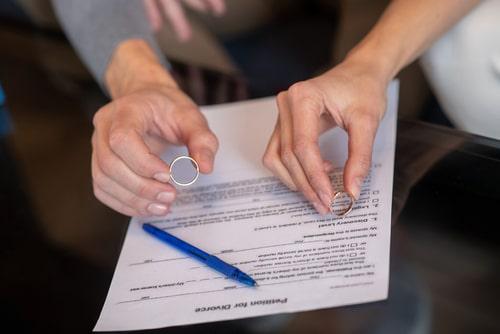Filing a Petition for Dissolution of Marriage in Kane County
 For those who have never been divorced, the divorce process can seem daunting and confusing. How do I file for divorce? What happens if my spouse serves me divorce papers? Can I refuse to sign the divorce petition? These are just some of the many questions that people seeking a divorce in Kane County, Illinois may ask.
For those who have never been divorced, the divorce process can seem daunting and confusing. How do I file for divorce? What happens if my spouse serves me divorce papers? Can I refuse to sign the divorce petition? These are just some of the many questions that people seeking a divorce in Kane County, Illinois may ask.
Read on to learn about the process of filing for divorce, responding to the divorce petition, and addressing divorce issues in Illinois.
The Divorce Petition Initiates the Divorce
The first official step in the divorce process is filing the divorce petition or "Petition for Dissolution of Marriage," as it is called in Illinois. Either spouse may file for divorce. Illinois is currently a no-fault divorce state so there is no need to list the specific reasons for seeking a divorce. The only ground for divorce in Illinois is irreconcilable differences.
Responding to the Divorce Petition
The person who initiates the divorce and files the petition is the petitioner. The other spouse, called the respondent, responds to the divorce petition. He or she must file an Appearance form and Answer form within 30 days of receiving the petition. Spouses may choose not to respond to the divorce petition. However, failing to respond means that they are choosing not to participate in the divorce process. In a situation like this, the petitioner may be granted a default judgment and given whatever divorce outcome he or she requests.
Determining the Outcome of the Divorce
Spouses must address several important matters during divorce. The division of assets and debts deals with how spouses will divide marital property. The more complex the spouses' financial portfolios, the more complex the asset division process is. If the spouses share children together, they must figure out how to divide parental responsibilities and parenting time. Spousal maintenance, also called spousal support, may also be a relevant factor in the divorce case.
Divorcing spouses have the right to negotiate their own agreements on divorce issues without the court's involvement. However, if the spouses cannot agree on one or more issues, the divorce case could end up in trial. Divorce trials are quite rare. In most cases, the spouses' respective attorneys are able to negotiate on their clients' behalf and reach a conclusion both parties are satisfied with.
Contact a Kane County Divorce Lawyer
Divorce can be complex and overwhelming. Fortunately, you do not have to deal with everything on your own. Call our knowledgeable St. Charles divorce attorneys at 630-584-4800. Set up a free consultation today.
Source:
https://www.ilga.gov/legislation/ilcs/ilcs4.asp?ActID=2086&ChapterID=59&SeqStart=8300000&SeqEnd=10000000











